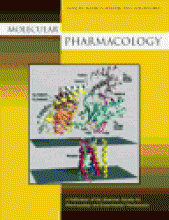Abstract
The protective adaptive response to electrophiles and reactive oxygen species is mediated by the enhanced expression of the phase II detoxifying genes through antioxidant response elements (AREs). The current study was designed to identify the signaling pathways responsible for the expression of rGSTA2 in response to cellular oxidative stress and to establish the molecular mechanistic basis. Deprivation of cystine and methionine caused oxidative stress in H4IIE hepatoma cells as evidenced by a marked decrease in the reduced glutathione (first order rate constant = 0.056 h−1;t 1/2 = 12.6 h) and an increase in pro-oxidant production. Electrophoretic mobility shift assay revealed that the ARE complex, consisting of Nrf-1/2 and Maf proteins, was activated 12 to 48 h after sulfur amino acid deprivation (SAAD). The rGSTA2 mRNA level was elevated by SAAD beginning at 24 h, whereas the rGSTA2 subunit was maximally induced at 48 h. Nuclear ARE activation and rGSTA2 mRNA increase were both completely inhibited by wortmannin or LY294002, the phosphatidylinositol 3-kinase (PI3-kinase) inhibitors. The p38 mitogen-activated protein (MAP) kinase was activated at 0.5 to 3 h after SAAD, followed by sustained diminished activation up to 12 h. Inhibition of p38 MAP kinase by SB203580 prevented the ARE-mediated rGSTA2 induction. The activation of p38 MAP kinase, however, failed to be inhibited by wortmannin or LY294002, showing that PI3-kinase is not involved in the activation of p38 MAP kinase. Data showed that PI3-kinase plays an essential role in the ARE-mediated rGSTA2 induction by oxidative stress after SAAD, which activates the p38 MAP kinase and leads to rGSTA2 induction.
Footnotes
- Received January 24, 2000.
- Accepted August 1, 2000.
-
Send reprint requests to: Sang Geon Kim, Ph.D., College of Pharmacy, Seoul National University, Sillim-dong, Kwanak-gu, Seoul 151-742, South Korea. E-mail: sgk{at}snu.ac.kr
-
This work was supported by Grant No. 2000-2-21700-002-5 from the Basic Research Program of the Korea Science and Engineering Foundation (KOSEF), Republic of Korea.
- The American Society for Pharmacology and Experimental Therapeutics
MolPharm articles become freely available 12 months after publication, and remain freely available for 5 years.Non-open access articles that fall outside this five year window are available only to institutional subscribers and current ASPET members, or through the article purchase feature at the bottom of the page.
|






